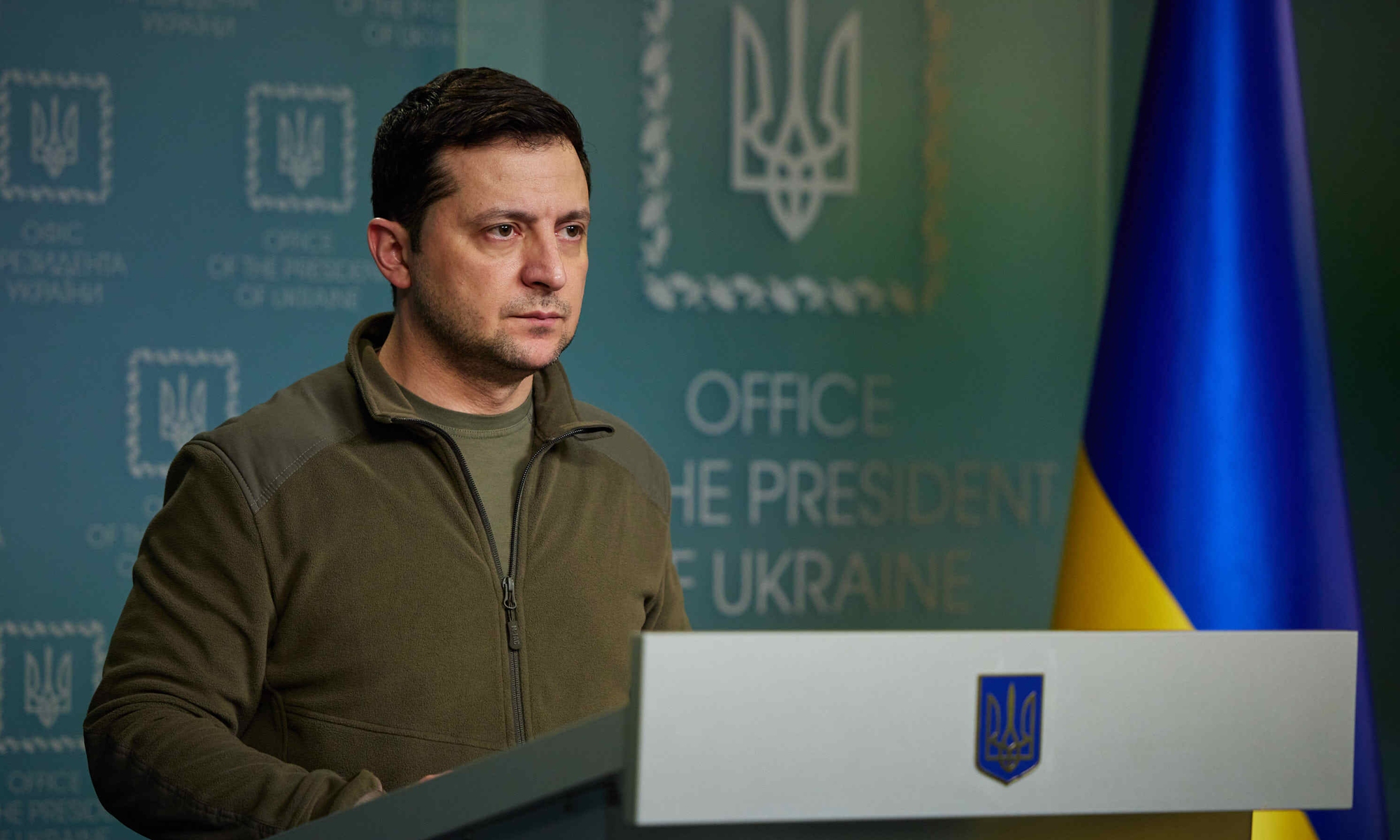
Ukrainian President Volodymyr Zelensky Photo:VCG
After Ukrainian President Volodymyr Zelensky secured security pacts with France and Germany, as concerns over funding from the US grow, the Ukrainian military announced the withdrawal of troops from the strategic stronghold of Avdiivka in the Donetsk region. Experts believe that there is no need to over-interpret the strategic significance of the Ukrainian military's withdrawal even though the capture of Avdiivka by Russian forces has political significance, especially as the Russia-Ukraine conflict approaches its two-year mark.
Meanwhile, as long as Ukraine is not a NATO member, France and Germany will not be obligated to fulfill collective defense mechanisms for the country despite it having secured security agreements with these two European powers, experts said. Therefore, these security agreements are more of a political commitment, but may not necessarily be practically operational.
Ukrainian troops withdrew from Avdiivka, Ukraine's new army chief said in the early hours of Saturday, paving the way for Russia's biggest advance since May 2023 when it captured the city of Bakhmut, Reuters reported on Saturday.
The withdrawal, announced as Ukraine faces acute shortages of ammunition with US military aid delayed for months in Congress, aimed to save troops from being fully surrounded by Russian forces after months of fierce fighting, according to Reuters.
While the Biden administration has been struggling to push its assistance to Ukraine through the Congress, Zelensky made a "whirlwind trip" through Berlin and Paris on Friday to seek support from European countries, with the security pacts hailed as a "historical step."
"Signing security pacts with France and Germany - two important countries in Europe - set a precedent, which potentially encourages other European countries to follow suit and strengthen cooperation with Ukraine," Song Zhongping, a Chinese military expert and TV commentator, told the Global Times on Saturday.
However, these security agreements do not equate to Ukraine joining NATO and benefiting from the so-called collective defense mechanism. In essence, they aim to continue strengthening military assistance to Ukraine, which is crucial for the Ukrainians at this stage, Song noted. "From a long-term perspective, these countries will also avoid direct military conflicts with Russia and prevent Ukraine from joining NATO."
The agreement between Ukraine and France includes a French aid pledge for up to 3 billion euro ($3.23 billion) for 2024, following 1.7 billion euro in 2022 and 2.1 billion euro in 2023. German Chancellor Olaf Scholz said Berlin was providing another 1.1 billion euro ($1.2 billion) package of military aid, including 36 howitzers, 120,000 rounds of artillery ammunition and two more air-defense systems, according to media reports.
Meanwhile, the EU is set to disburse an initial 4.5 billion euro to Ukraine as soon as in the first half of March to help cover the country's urgent budget needs, Bloomberg reported on Saturday, citing European Commission Vice President Valdis Dombrovskis.
"Europe faces a dilemma in aiding Ukraine: Providing assistance requires significant financial commitment, and there is considerable opposition within Europe; however, refraining from giving aid would completely undermine years of political correctness," Cui Heng, a scholar from the Shanghai-based China National Institute for SCO International Exchange and Judicial Cooperation, told the Global Times on Saturday.
Europe will still provide assistance to Ukraine, but the extent and speed of aid will be reduced. The previously approved 50 billion euro aid package may not be implemented as quickly as anticipated, Cui noted.
Cui also noted that the security agreements signed between Ukraine and the major European powers are non-binding and carry no obligation or responsibility. "Regardless of how the situation unfolds in the future, the European powers will not be dragged into conflicts. Zelensky has gained the support of the European powers he desired, achieving a win-win situation with a document that holds little substance," Cui said.




